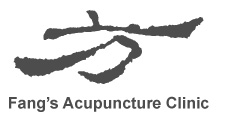
What is herbal medicine?
Herbal medicine has been used by people all over the world to treat many diseases and conditions for over thousands of years. Traditional Chinese medicine (TCM) has the longest history and has the most resources about herbs. This oldest form of health care has now become the trend in today’s world when people are looking for natural healing. Every year the American spend tens of billions dollars on herbal products.
Chinese herbs are mostly comprised of seeds, berries, roots, leaves, bark, flowers, sea shells and minerals etc. An experienced herbalist knows how to combine different amount of different herbs to make a “Formula” which treats a certain condition.
What can herbs treat?
Numerous studies and researches both in ancient world and today’s laboratory have shown that herbal products can treat a variety of conditions, including colds, cough, digestive disorders, insomnia, headaches, arthritis, skin disorders, asthma, and a host of other problems usually treated with pharmaceuticals and prescription medications. Herbs combine well with acupuncture to balance the body’s energies both externally and internally.
How are herbs taken?
Herbal formulas can be taken in a variety of ways. You may be prescribed raw herbs. You will take them home, and following simple instructions, steep these herbs into a tea to be drunk at home. Although we call it "tea," some patients find the taste to be a little less than "delicious." For this reason, we also offer herbal supplements in pill and capsule form. Herbal formulas tend to be created for a single patient and their specific pattern of disharmony.
Are there any side effects to taking herbs?
Herbs are relatively safe to take, but it is advisable to notify us of all current medication that you are taking so that we can prevent any side effects or incompatibilities. Also, any food allergies or medication allergies should also be brought to the herbalist's attention to prevent unwanted side effects.
